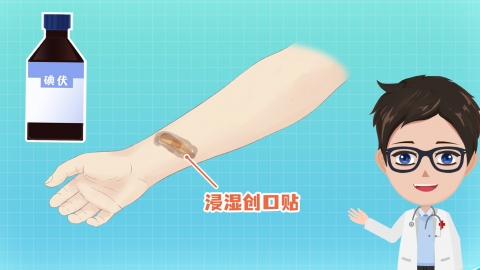What are the symptoms of povidone-iodine allergy?
Generally, symptoms of povidone-iodine allergy include skin redness, itching, swelling, blisters, difficulty breathing, and others. If povidone-iodine must be used, it is recommended to consult a doctor first. Detailed analysis is as follows:

1. Skin Redness
During an allergic reaction, the body releases chemicals such as histamine. Histamine causes blood vessels in the skin to dilate, resulting in redness, which typically appears at the site of contact with povidone-iodine.
2. Itching
When the immune system is activated, it releases substances that not only dilate blood vessels but also stimulate nerve endings in the skin, causing itching. This sensation may further worsen skin damage.
3. Swelling
During an allergic reaction, increased vascular permeability allows some liquid components of blood to leak into the interstitial spaces of tissues, causing localized swelling. This may occur in the skin or mucous membranes.
4. Blisters
In more severe allergic reactions, inflammation caused by the allergy may separate the epidermis from the dermis, forming fluid-filled blisters of varying sizes.
5. Difficulty Breathing
If someone is highly allergic to povidone-iodine and a significant amount is absorbed through the skin or mucous membranes into the body, it may trigger a systemic allergic reaction affecting the respiratory tract and causing difficulty breathing.
Therefore, individuals allergic to iodine should avoid using povidone-iodine to prevent allergic reactions. When using povidone-iodine, correct application methods should be followed to avoid unnecessary risks.







